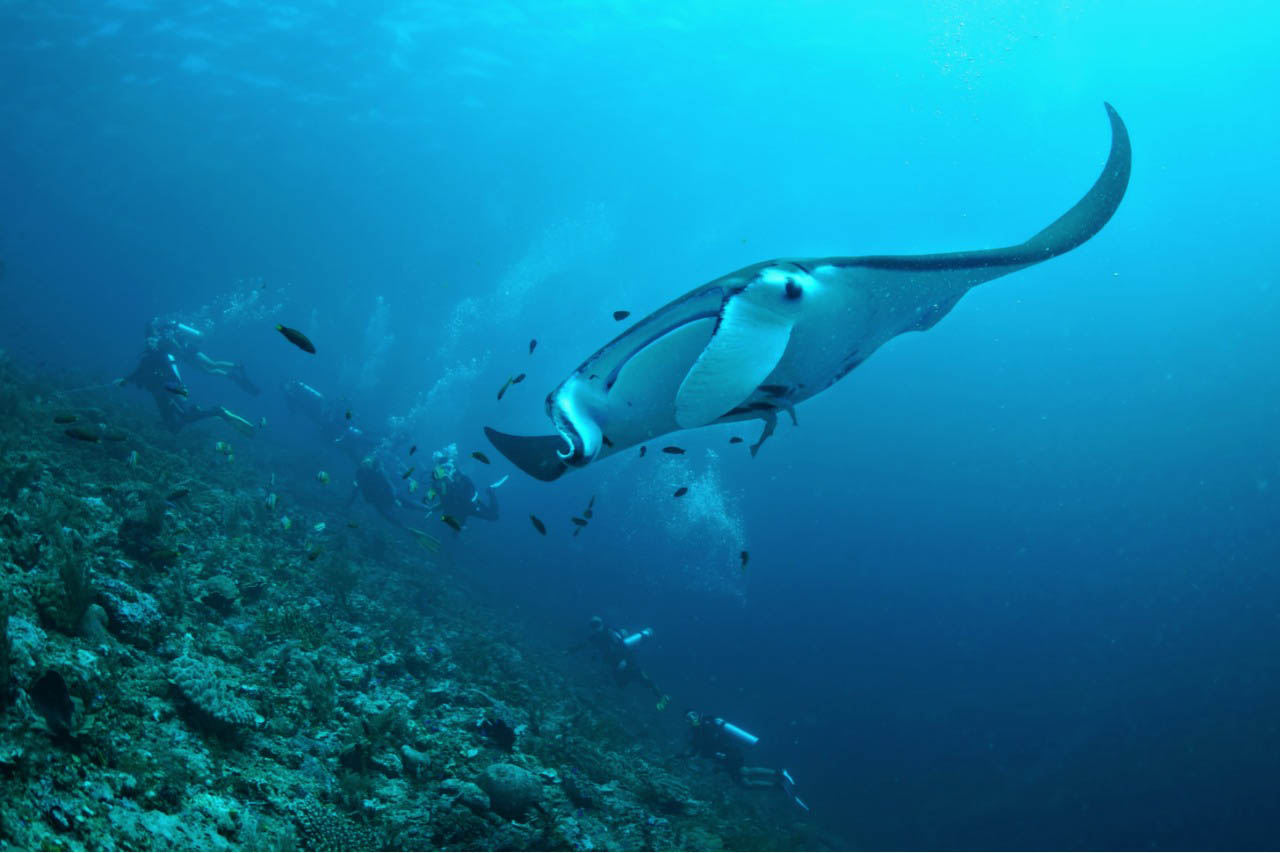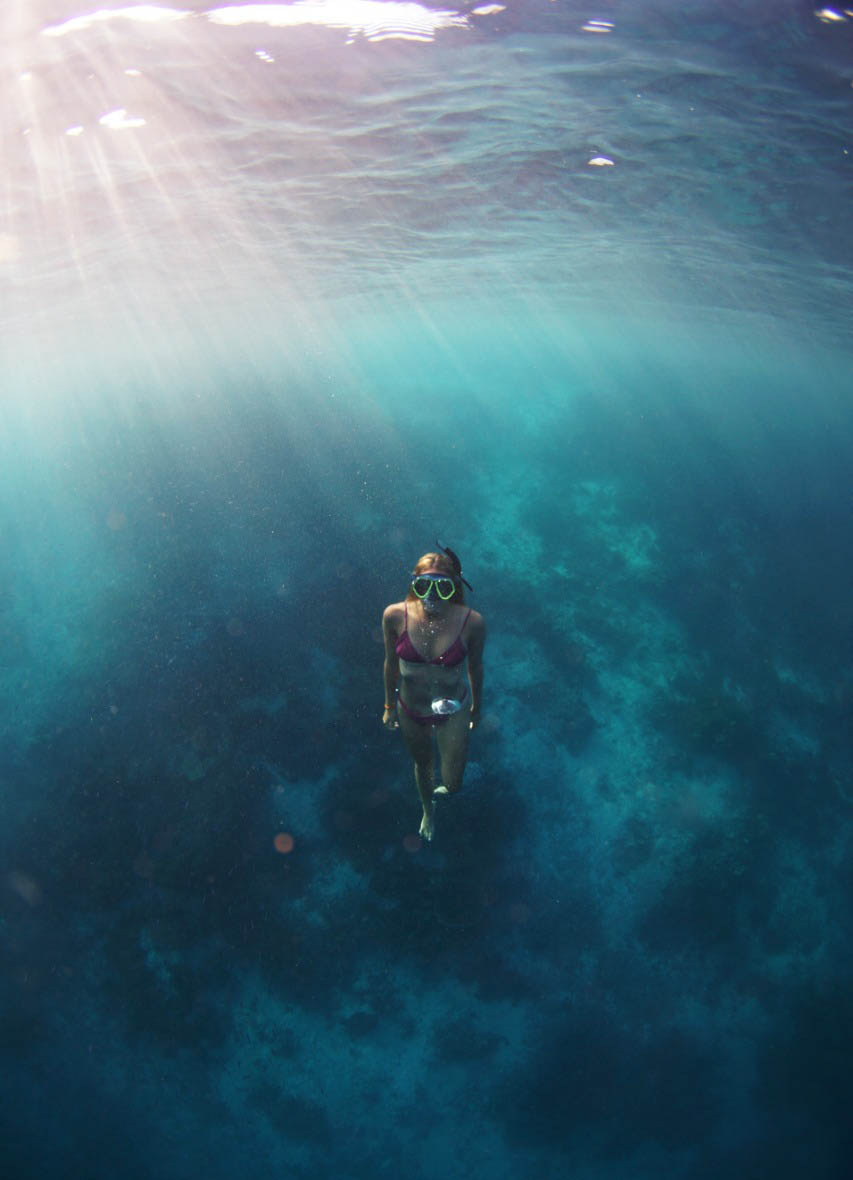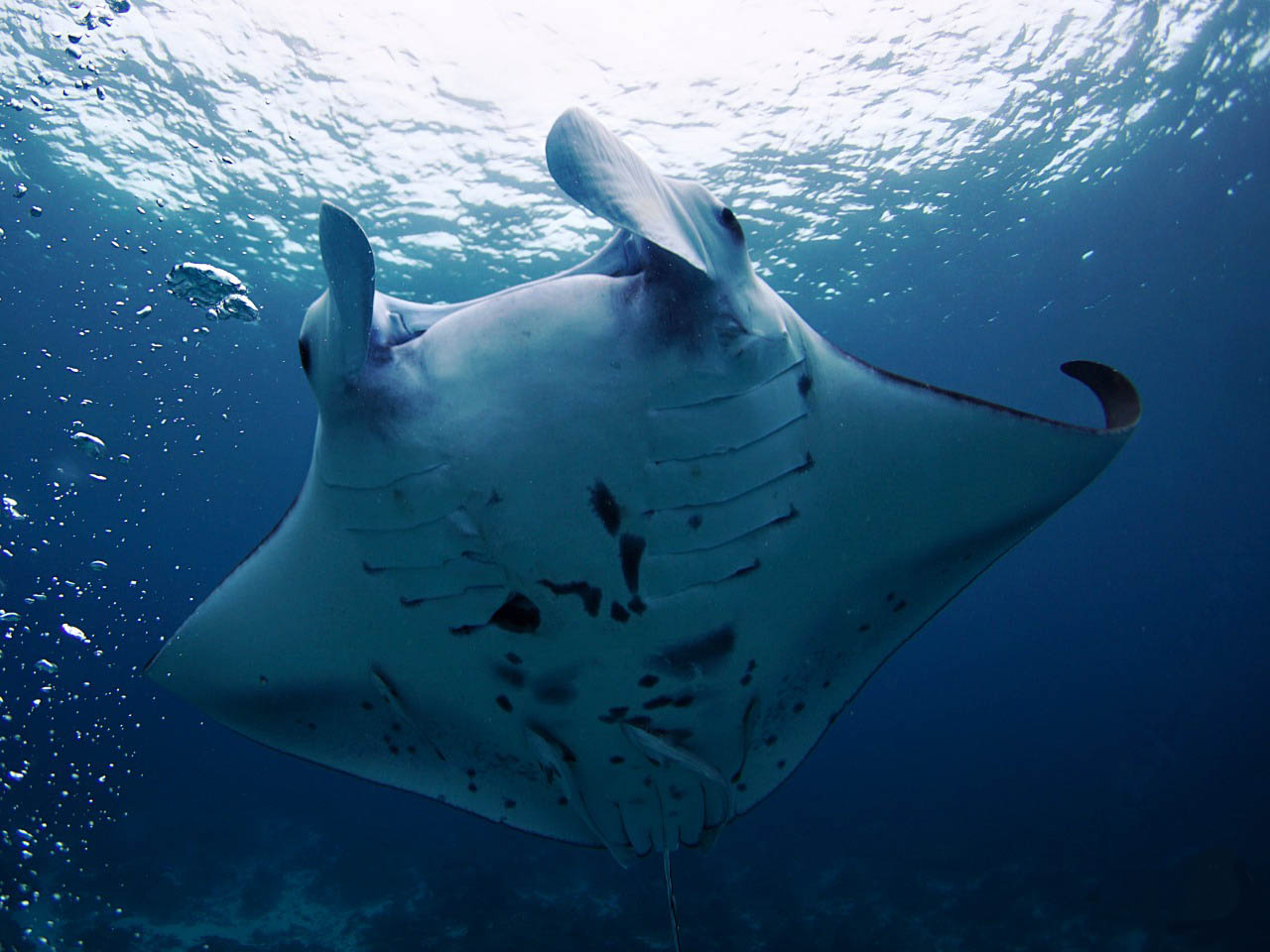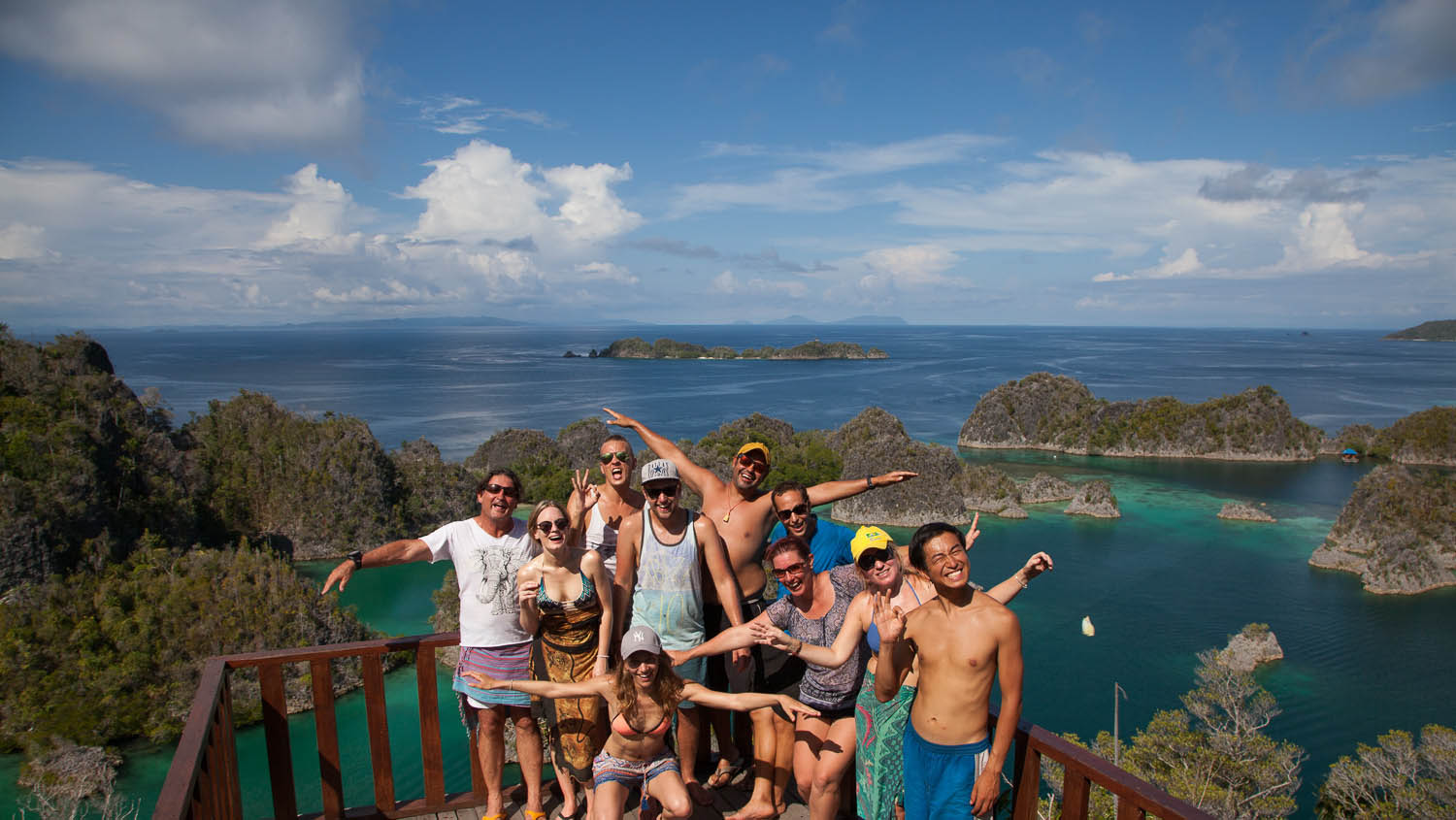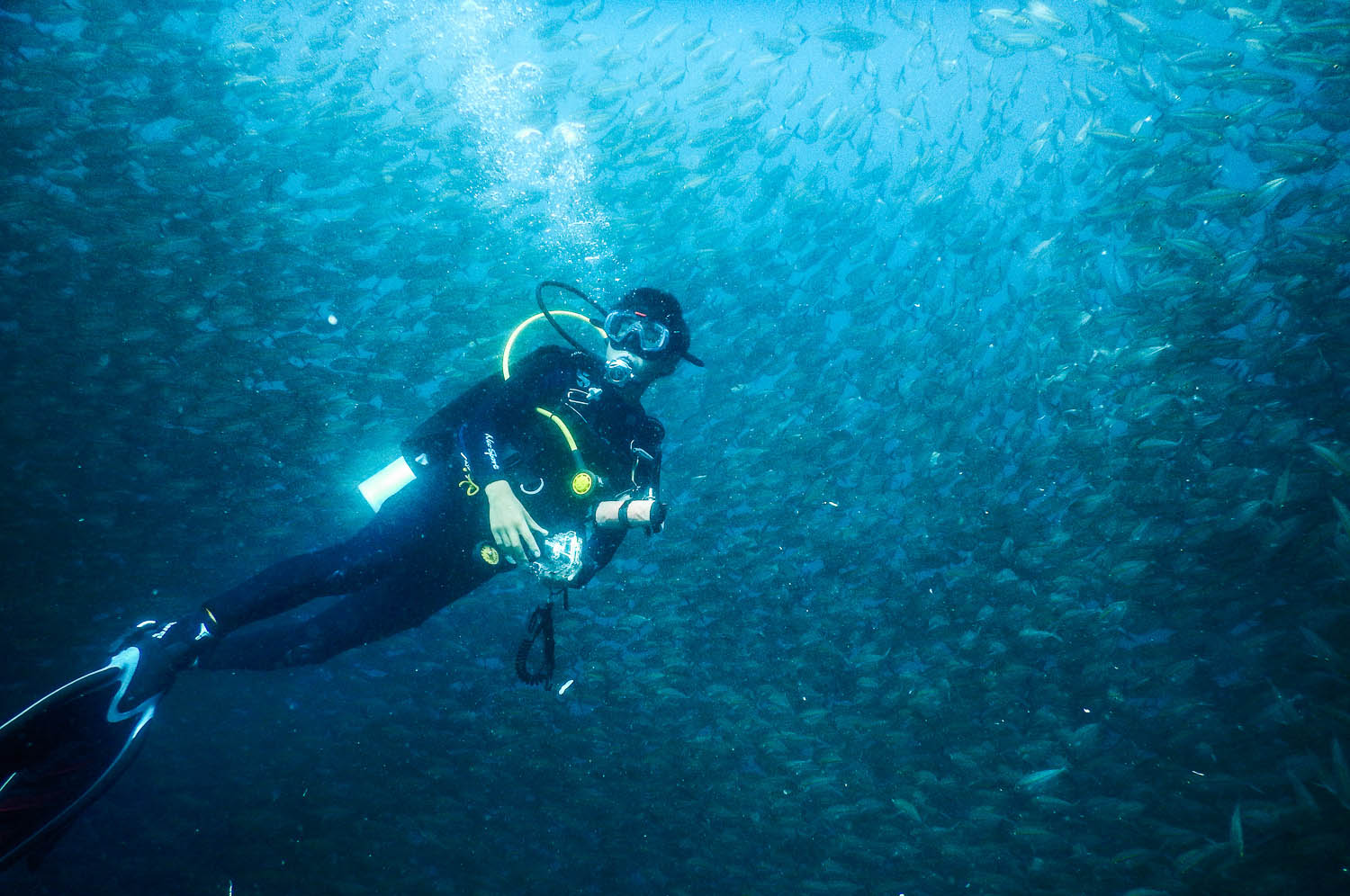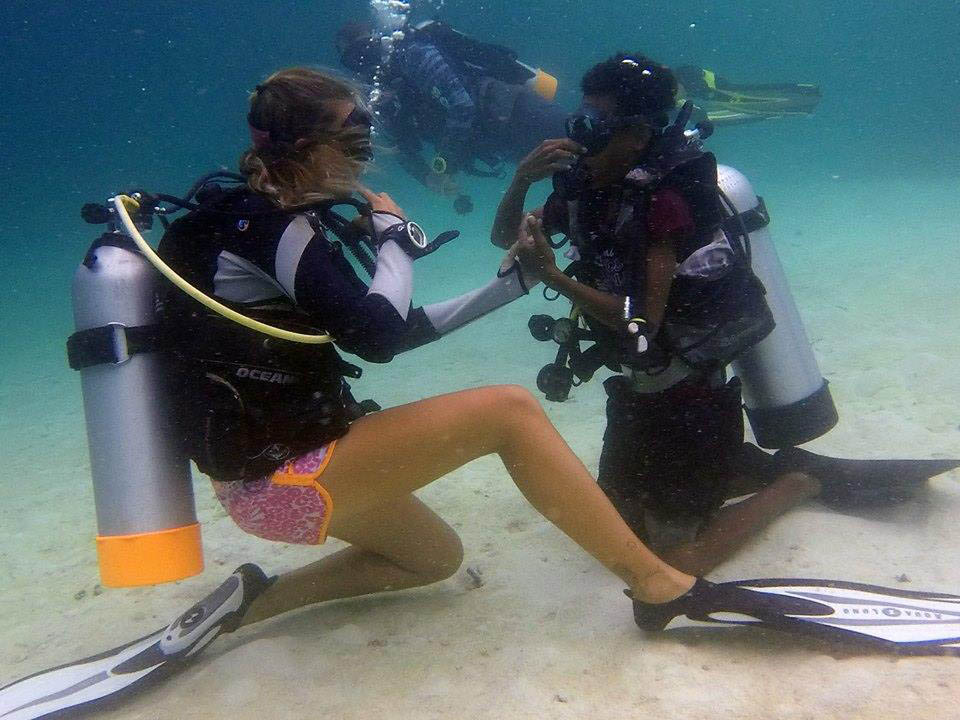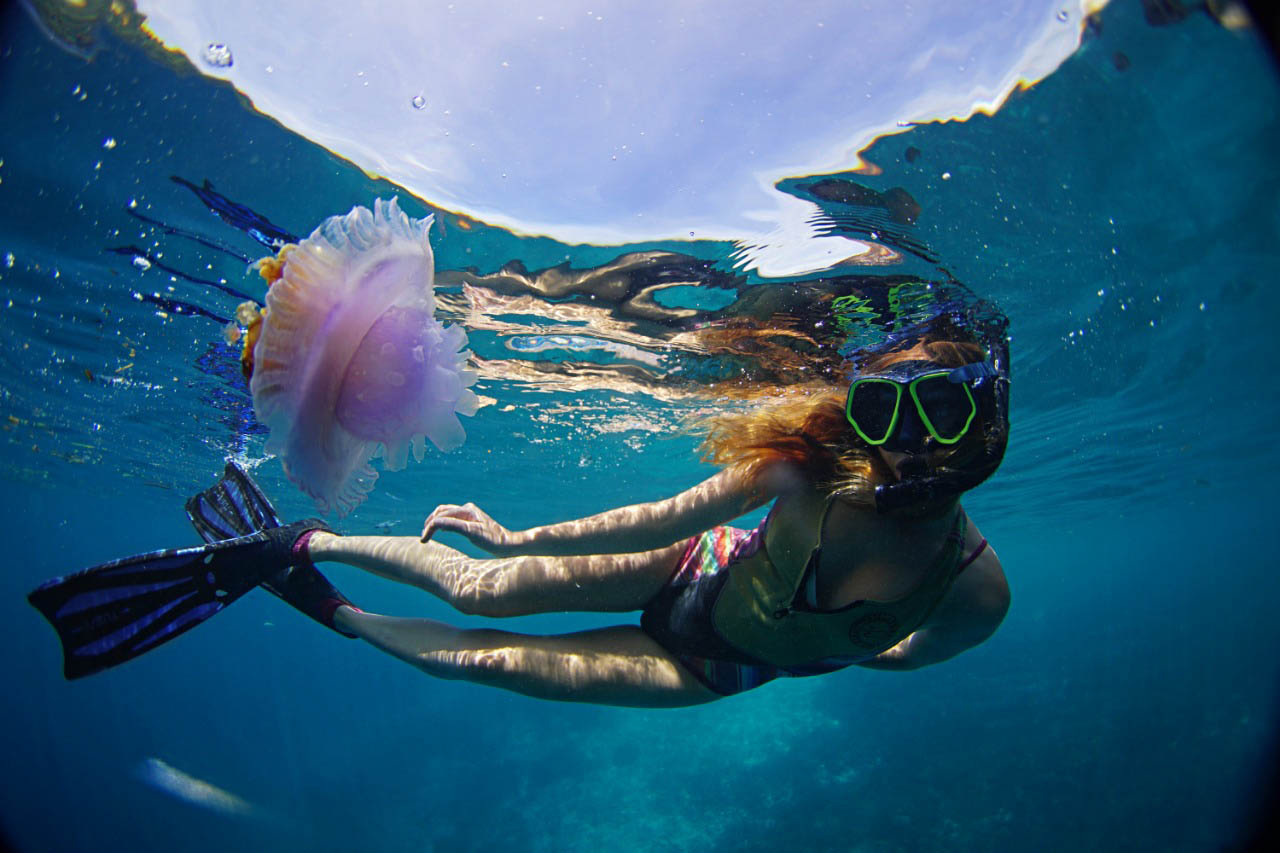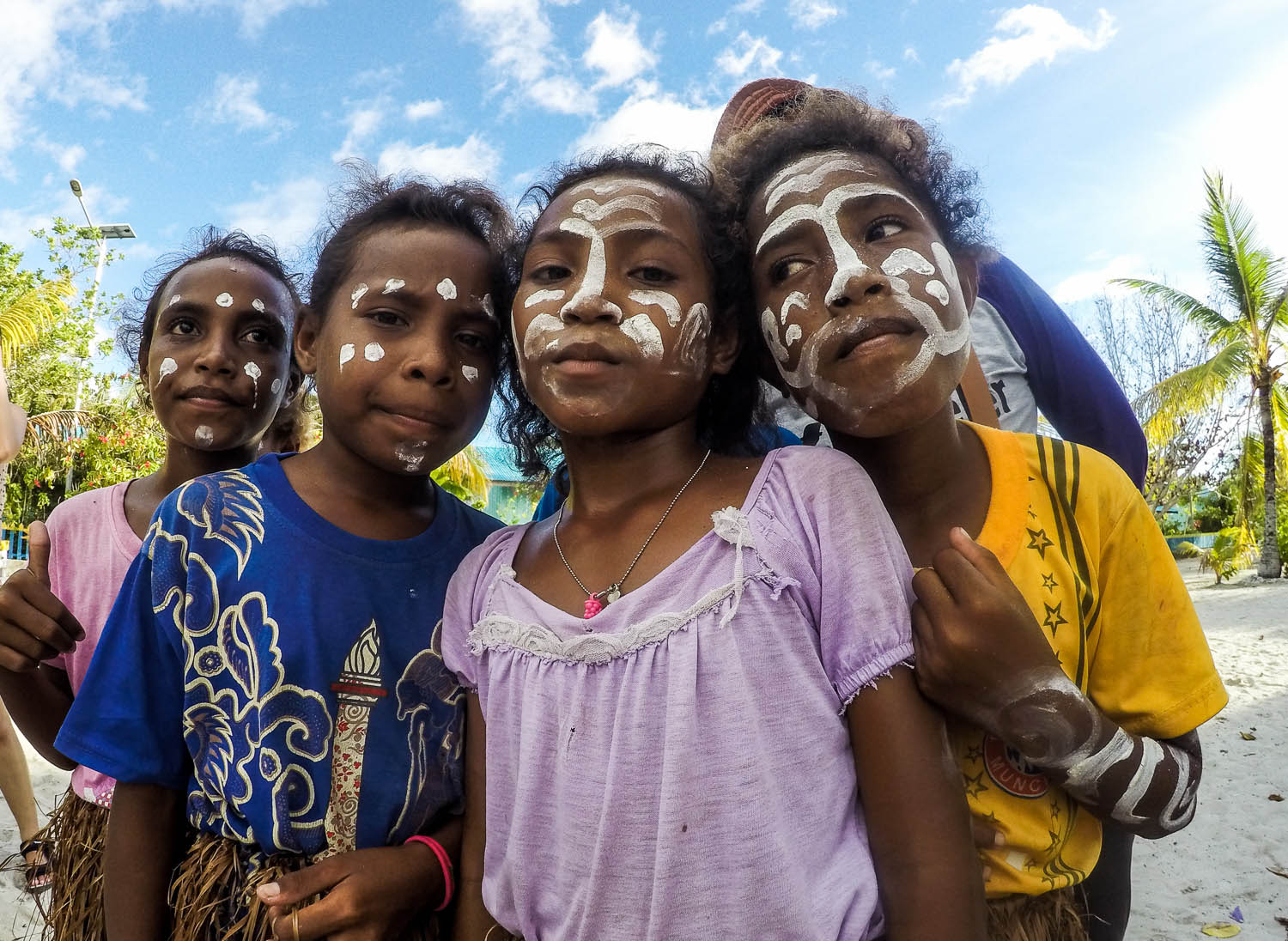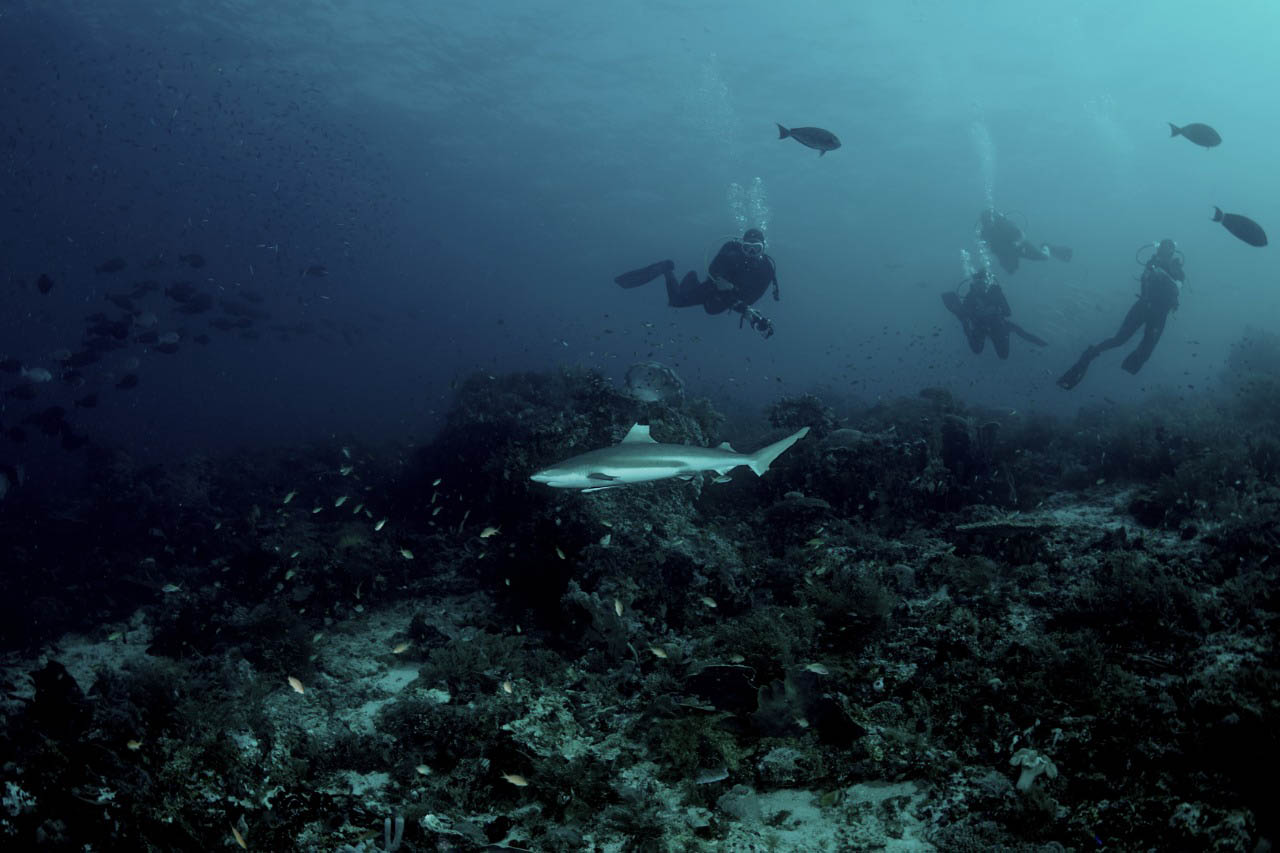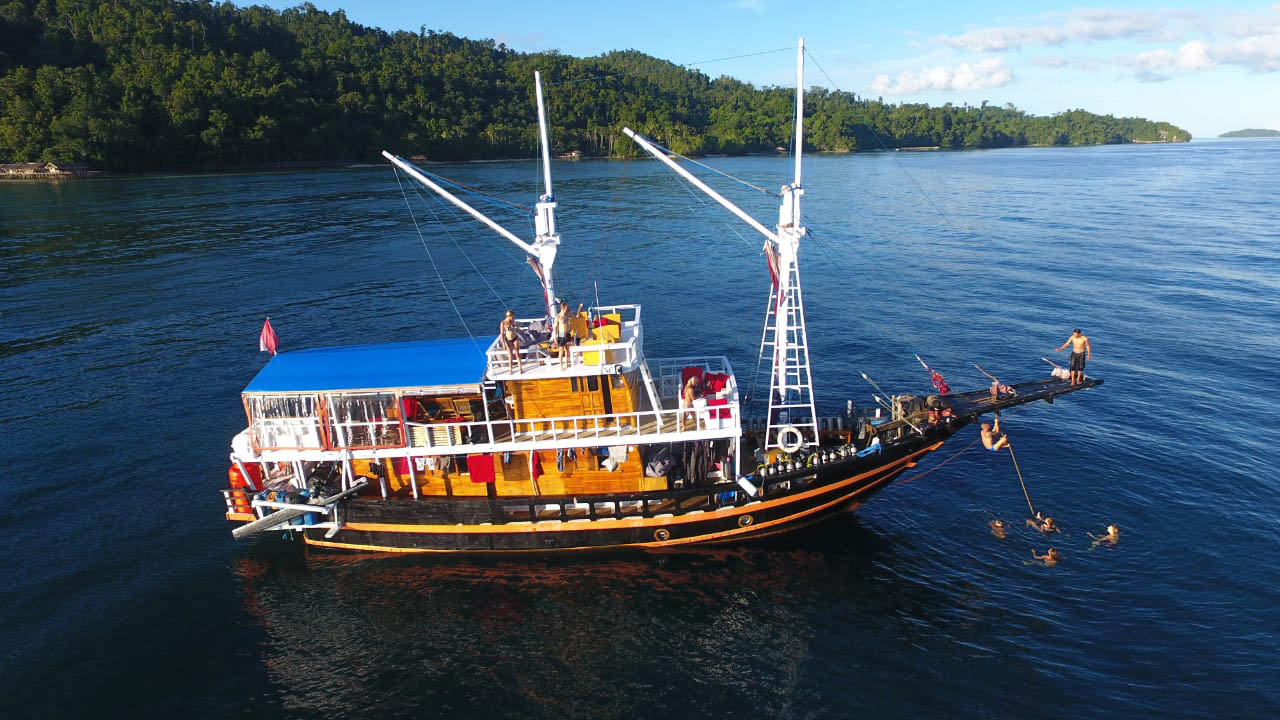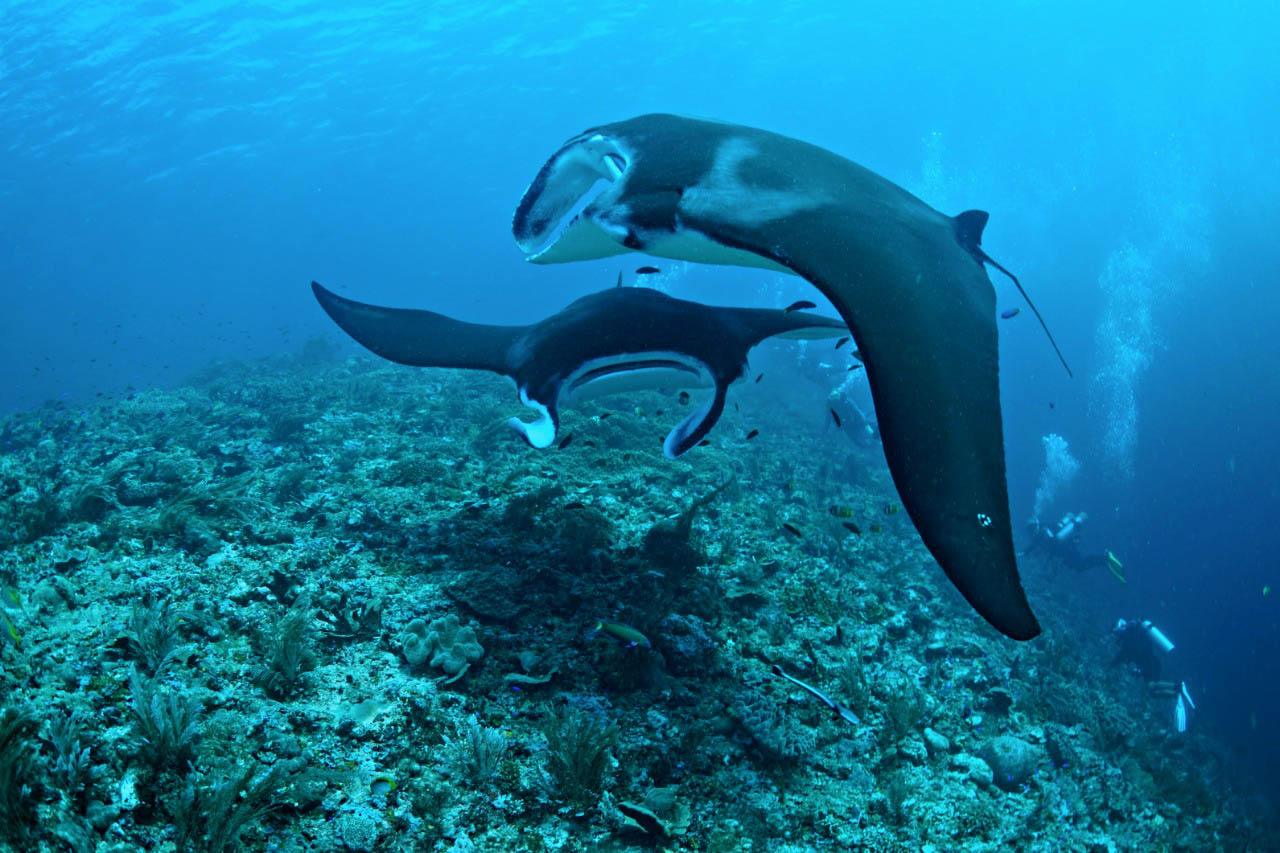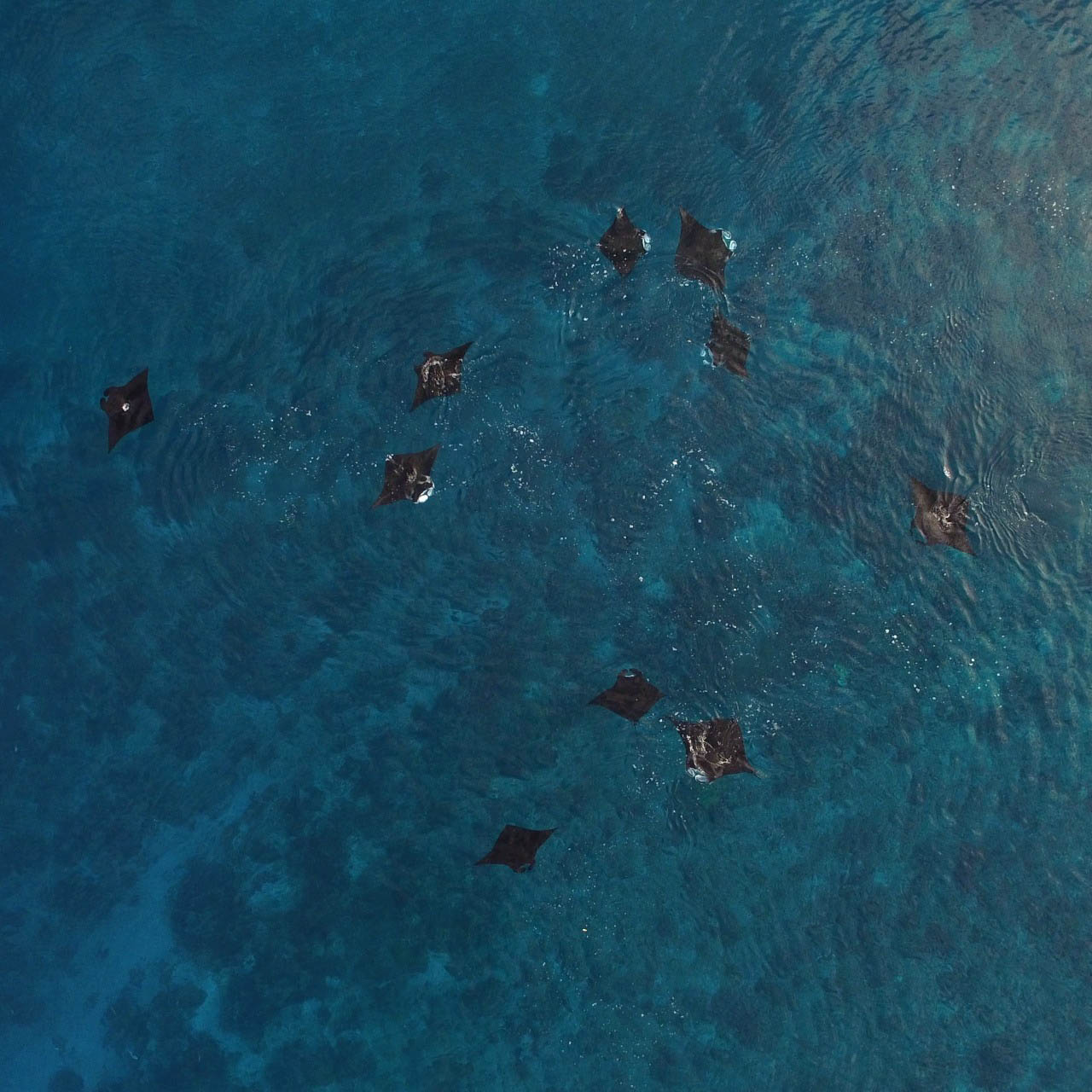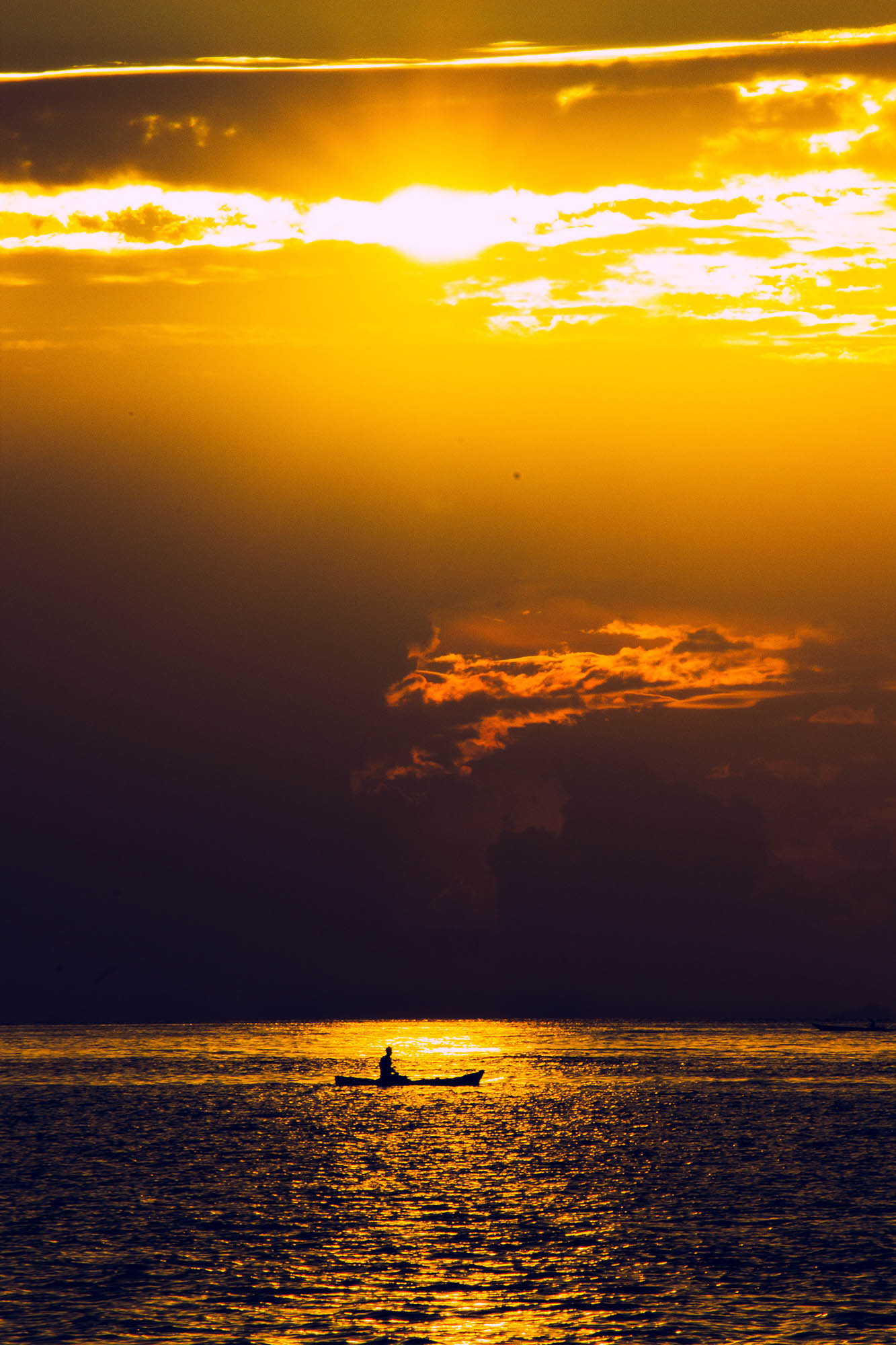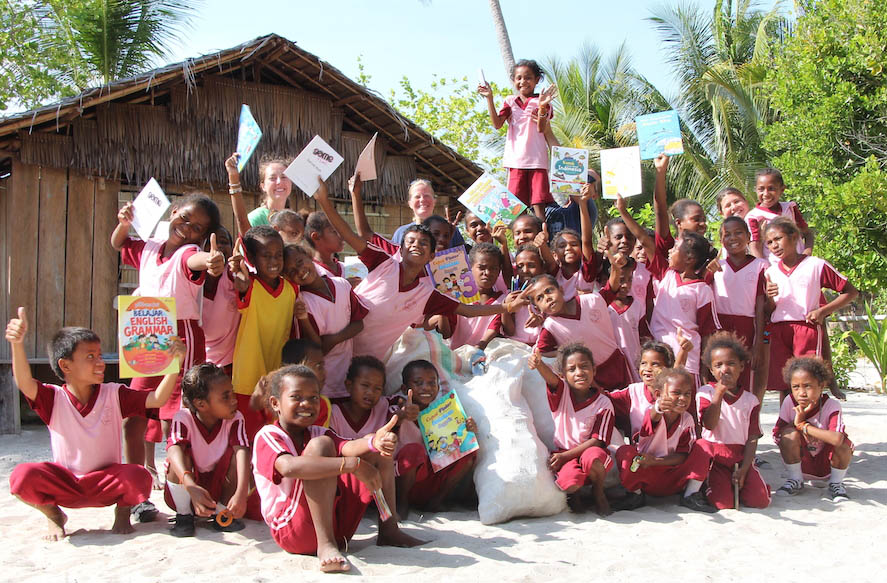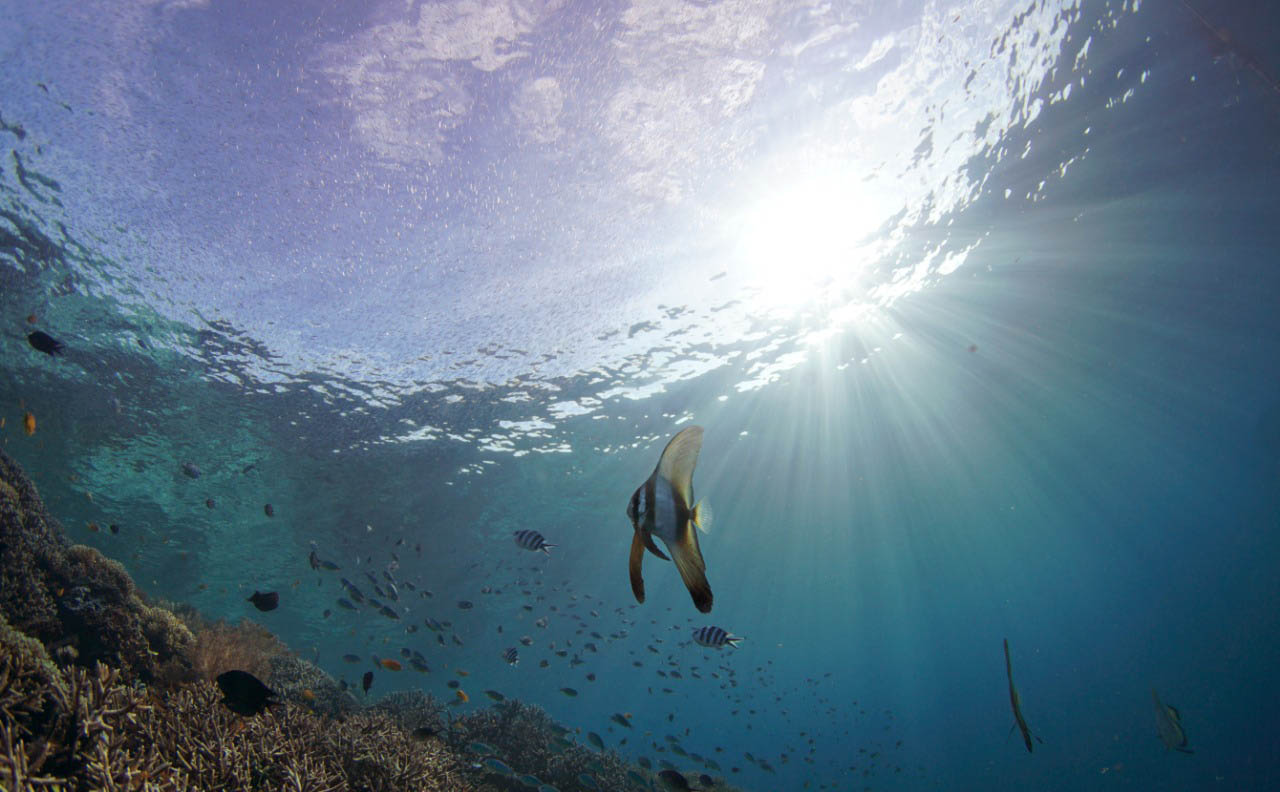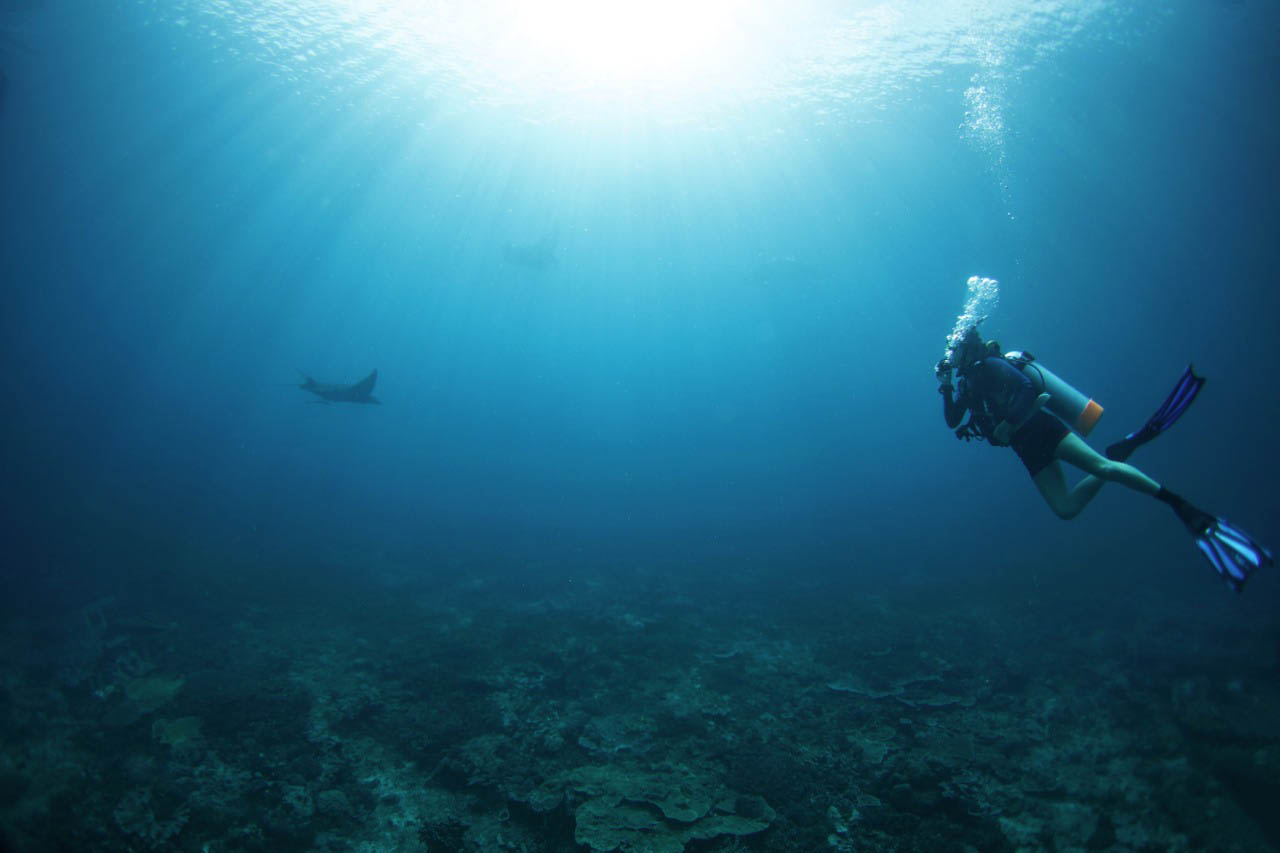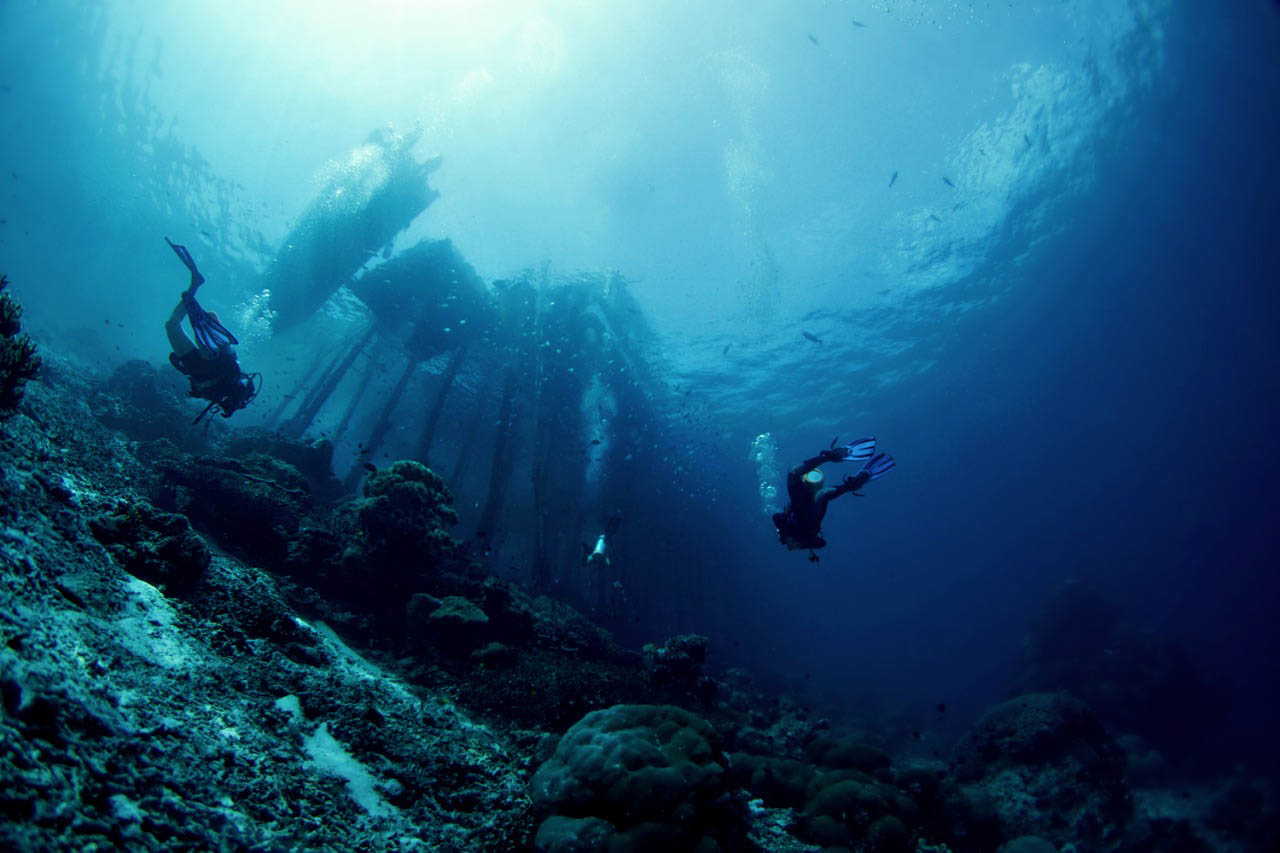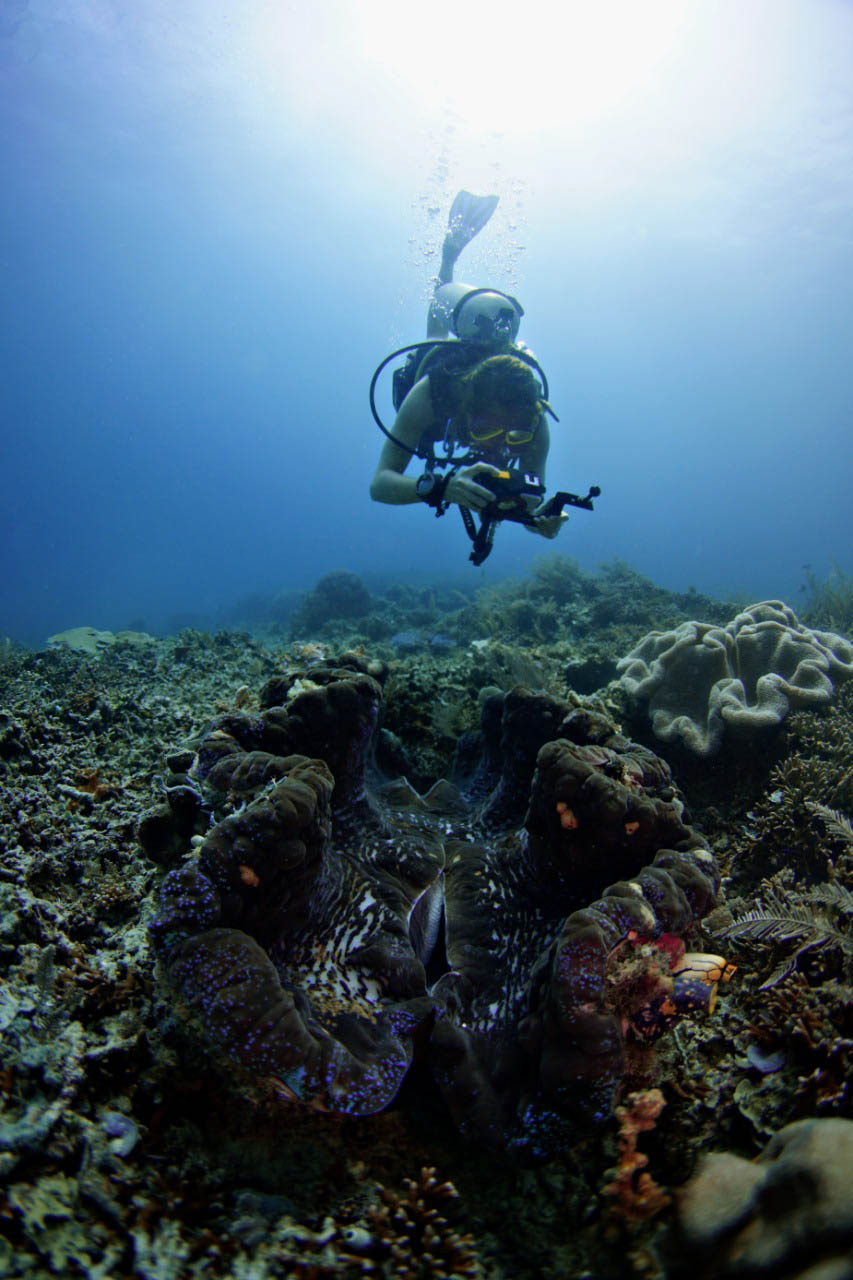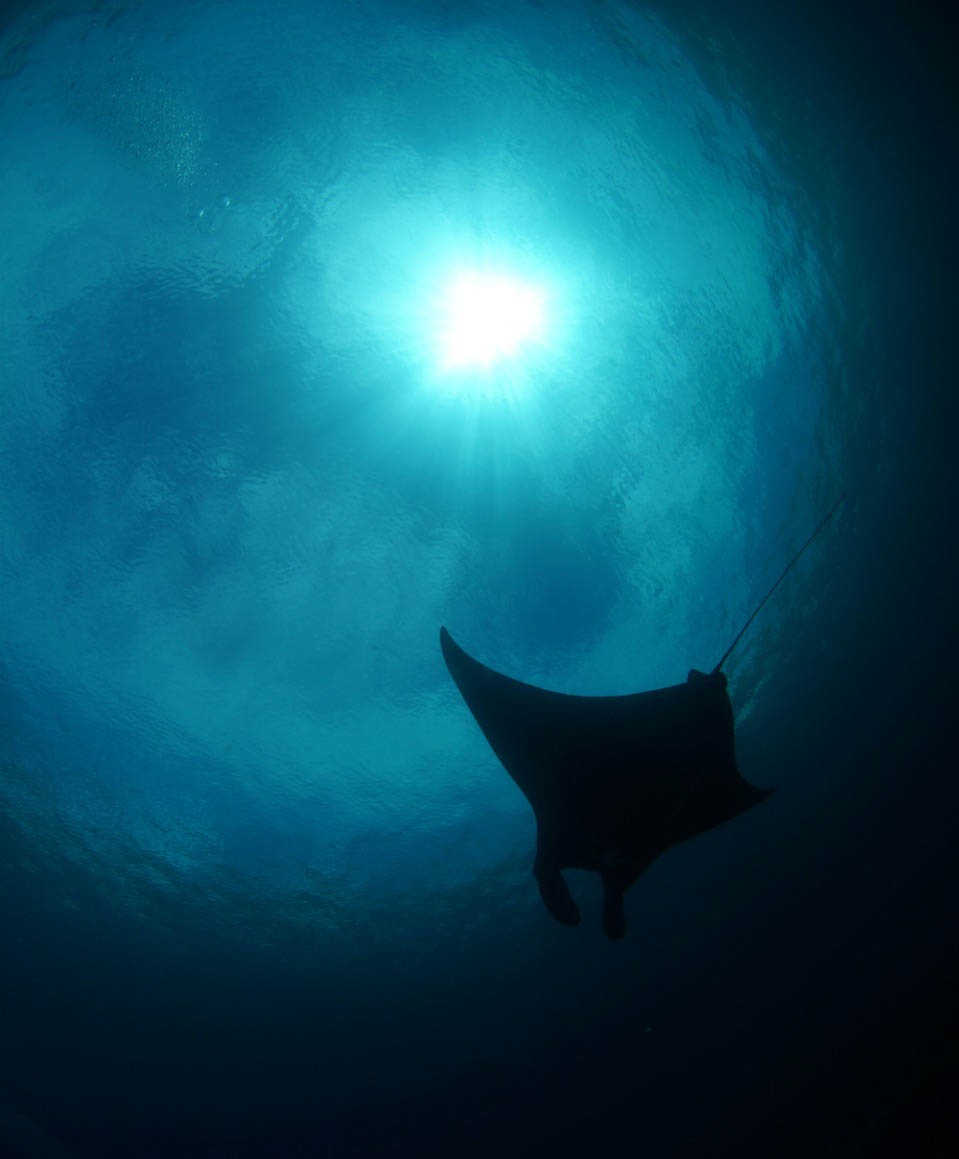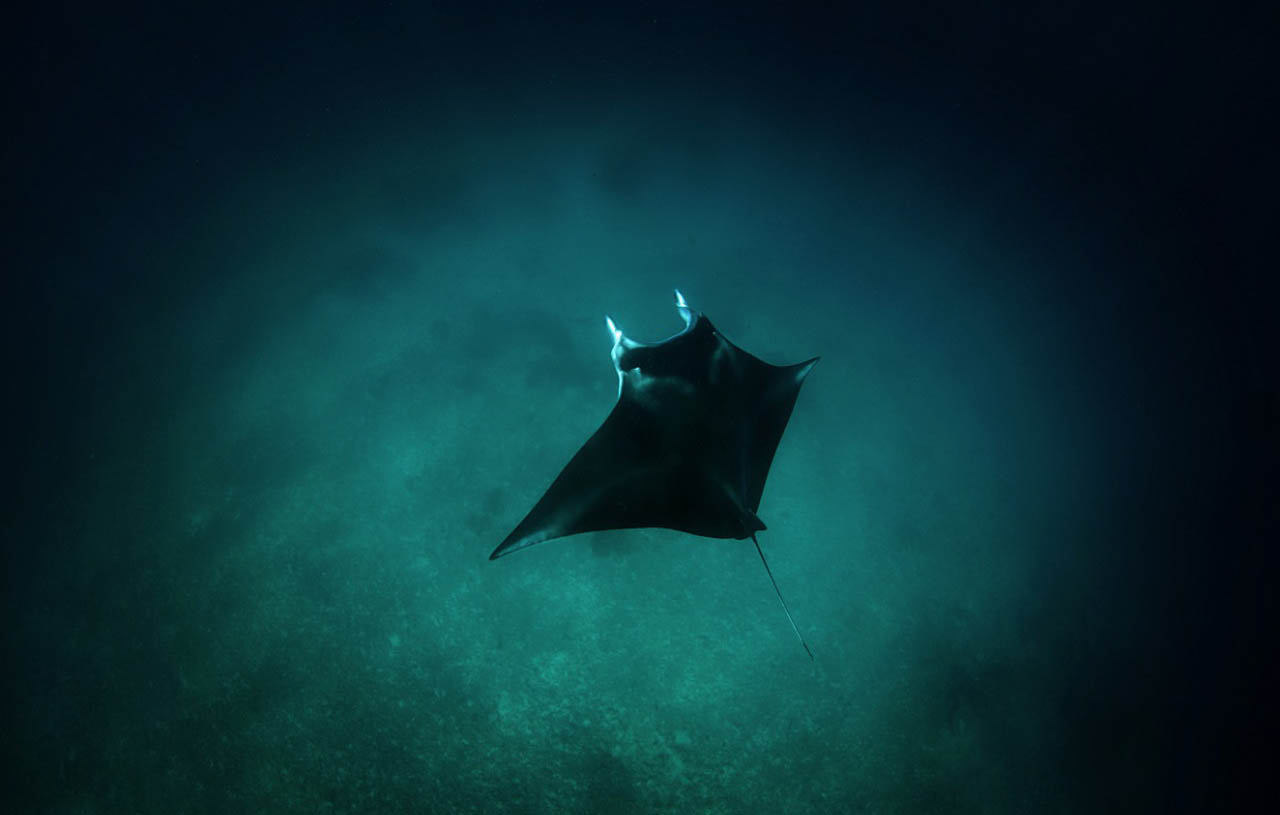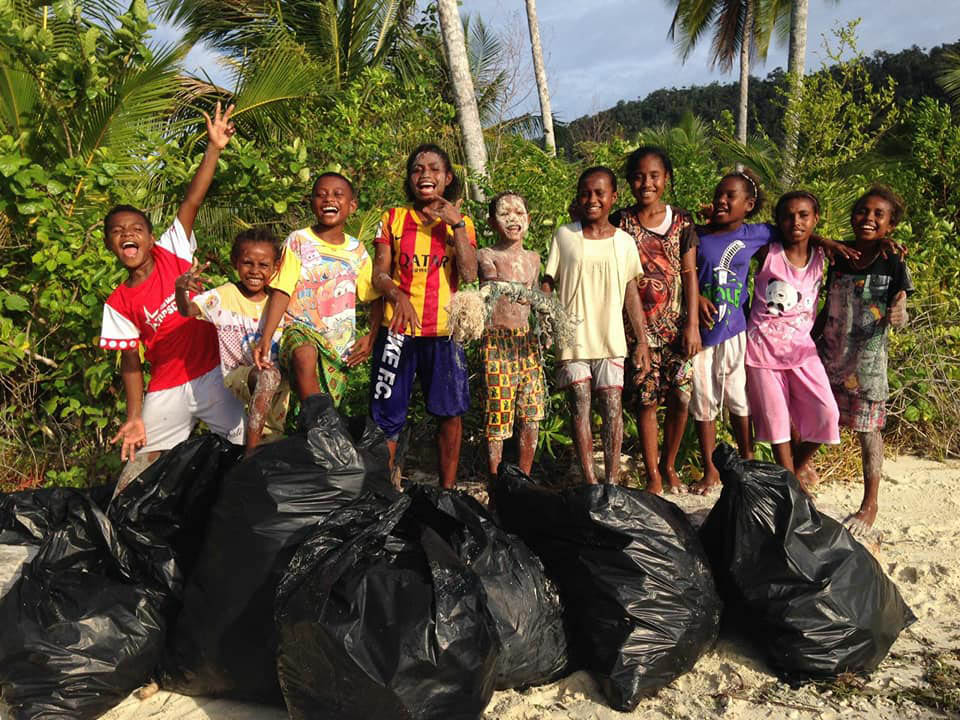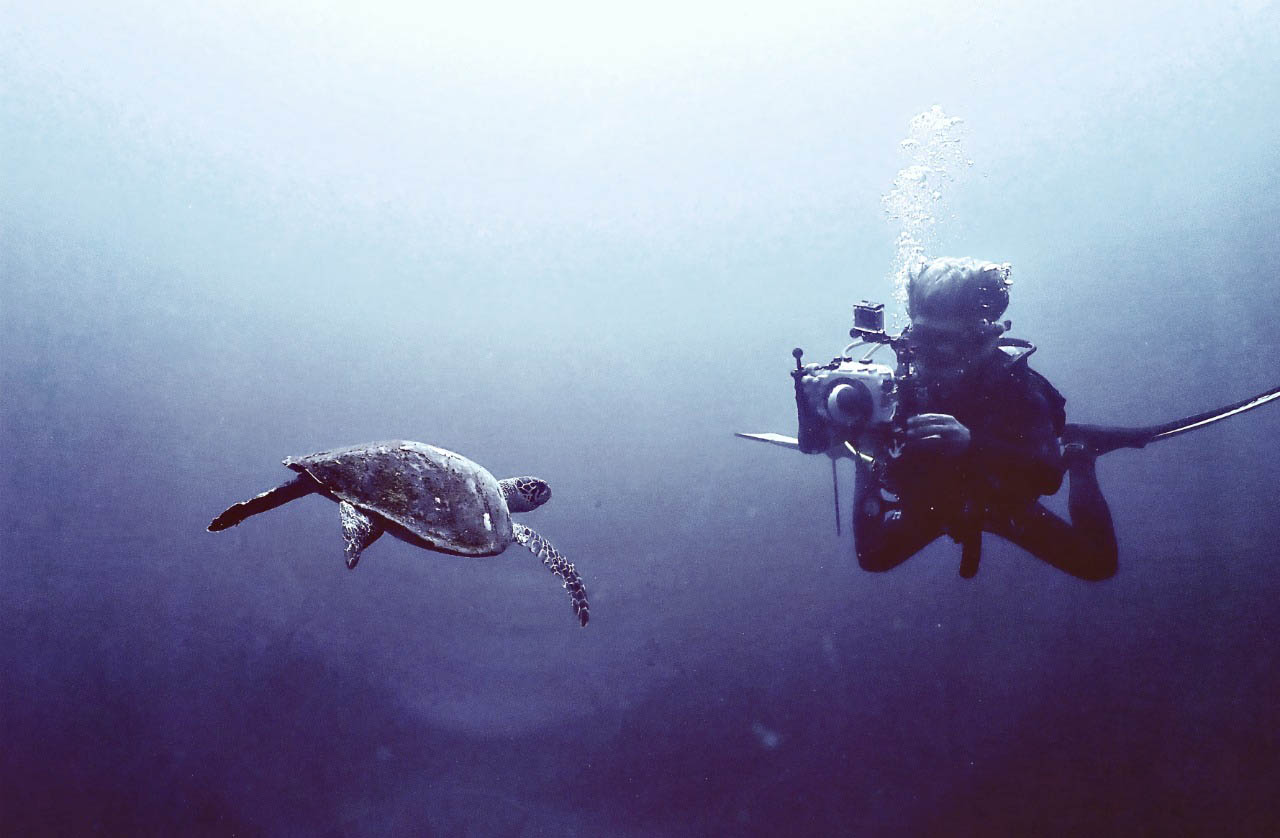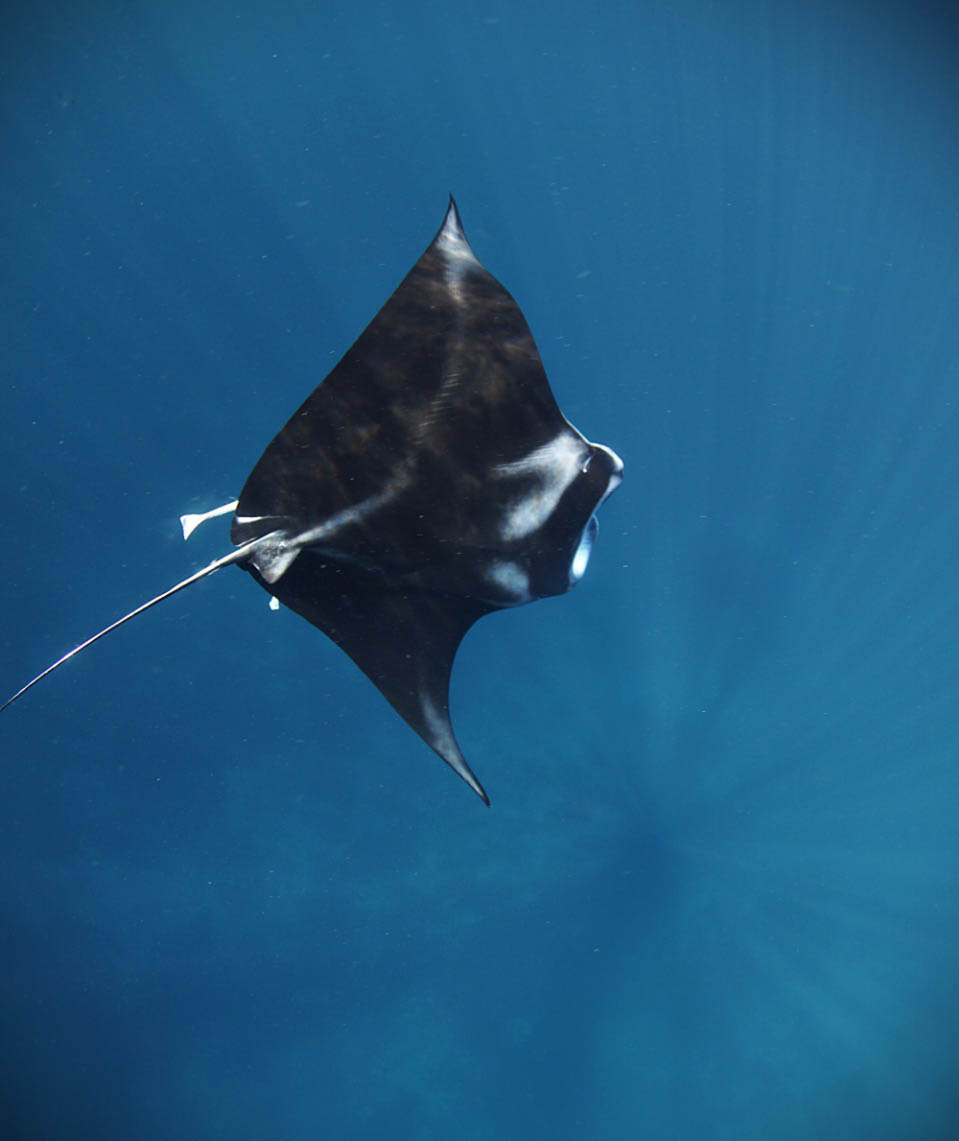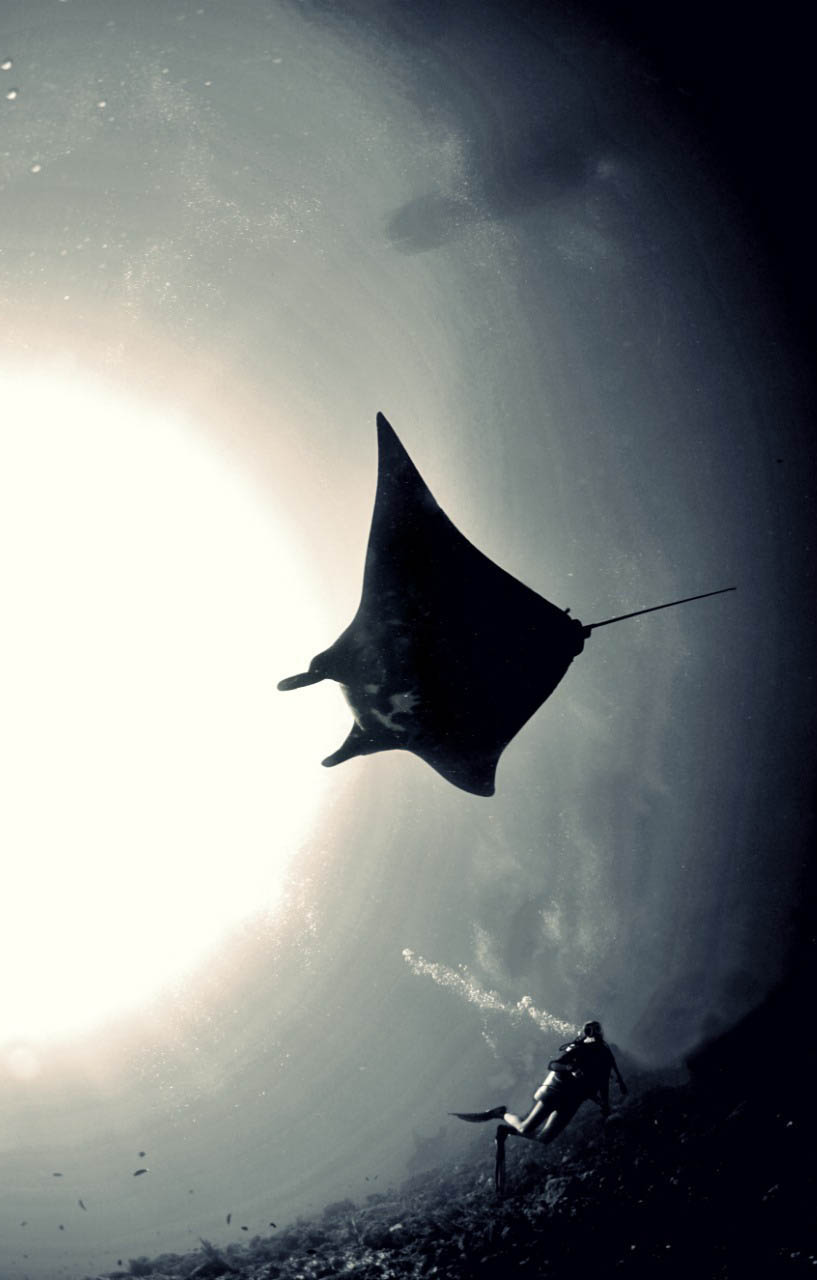Dive into paradise & collect
research data in Raja Ampat
Explore one of the final diving frontiers in the world!
-
Duration
2-12 Weeks -
Accompanied age
10+ -
Minimum age
18+ -
Start dates
vary -
From
£1,495
-
Duration
2-12 Weeks -
Accompanied age
10+ -
Minimum age
18+ -
Start dates
vary -
From
£1,495
Raja Ampat Diving Conservation
Quicklinks
Get set to dive in, in Raja Ampat, one of the final diving frontiers and unquestionably the most bio-diverse area for marine life in the world!
With over 1500 small islands, cays and reefs (many of which are yet to be mapped and discovered), Raja Ampat sits right in the heart of the “Coral Triangle”, which contains 80% of all of the world’s coral species!
Working alongside conservationists, the local government and community, you will dive in twice everyday to take part in a wide variety of marine conservation activities. As part of these dives, you will gather information about the health of the coral reefs, map habitats, restore reefs, identify manta rays and more. You will explore the hidden reefs and meet some of the 1300 species of fish, along with the 27 varieties of marine mammals and sea turtles that call the surrounding waters home.
Background to the programme
Climate change and mass pollution has caused insurmountable damage to our planet, especially to our oceans around the globe. However, Raja Ampat’s reefs have shown resistance to the effects of coral bleaching and disease. That said, any damage to the reefs in and around Raja Ampat will massively impact the whole world’s marine ecosystem, which is why this project is so important and needs the help of volunteers like you!
With international volunteers and the local community bonded together by a willingness to make a real difference, it’s important that everyone understands that marine protected areas cannot work unless accompanied by research, education and the sustained alleviation of poverty.
Many of the islands remain unexplored and with so much biodiversity in the area, the vast reefs are concealing many mysteries. There is still a lot of work to do to understand the waters in Raja Ampat and the ecosystems within them.
By volunteering in Raja Ampat, you will work alongside a team of science officers and conservationists to collect and provide information about the reefs to the local governments and communities. We need to ensure everything possible is being done to protect these fragile ecosystems and by collecting vital research data and carrying out regular survey dives, we can contribute to wider conservation activities and decisions – giving the reefs the best chance of staying healthy.
As part of the programme, the local team hope to –
- Produce detailed coastal habitat maps of surrounding area for use in advising local government and communities on Marine Protected Areas (MPA's).
- Undertake educational programmes on environmental issues, sustainable fishing techniques and the economic benefits of MPA's.
- Increase quality of life and alleviate poverty in local communities, through several community projects
- Research the effects of Climate Change on rural coastal communities.
Where will I be volunteering?
Raja Ampat loosely translates to mean "Four Kings", and is an archipelago in the East of Indonesia is made up of 1500 small islands and cays surrounding the main four islands (or Four Kings) of Misool, Salawati, Batanta and Waigeo.
Raja Ampat sits right in the heart of the "Coral Triangle", which is unquestionably the most bio-diverse area for marine life in the world. Incredibly, the oceans that surround Raja Ampat contain 80% of all the world's coral species (10 times the number of species found in the entire Caribbean!). With over 1350 species of fish, 6 of the world’s 7 marine turtle specie and 27 varieties of marine mammal calling these waters home, there is lots to see and do as part of your research dives!
The Raja Ampat Regency covers over 40,000 Sq Km of land and sea including the largest national marine reserve in Indonesia; "Cenderawasih Bay" – just 45 minutes from the project island / site.
With so many of the 1500 small islands, cays and reefs still to be mapped and discovered, Raja Ampat truly is one of the "worlds" final diving frontiers!
What is my role?
Everyone will scuba dive twice per day (depending on the weather and sea conditions) to collect important research data on the coral reefs and marine life. With such biodiversity and large areas still undiscovered and mapped, this unique diving opportunity is sure to be a once in a lifetime opportunity.
One of the most important parts of the project, is gathering information about the health of the coral reefs in the area by conducting science dives. The vital data you collect is then supplied to the local community and government so that decisions about how best to protect the reef and all of the marine life in and around Raja Ampat.
The data that is collected from the above dives is then also useful for the local reef restoration project. You will be able to get involved with growing new corals within a coral nursery before planting them on a nearby reef that previous research has identified as being damaged and / or affected by coral bleaching. You will become fully involved in the monitoring, maintenance and cleaning of the coral nurseries and also collect ongoing data that will contribute to the long term restoration of the surrounding reefs.
You will also have the opportunity to take part in manta ray identification dives, where you will learn how to distinguish the manta rays by the markings on their belly. You will collect data and photos to input them into the database, that will again contribute to longer term research data on manta rays. Volunteering between November and May is the the peak manta ray season, but you may also be able to see manta rays outside of this peak season, but sightings will generally be less.
So that you are and the other volunteers are able to contribute effectively to the research that is being undertaken, you will get to take part in a variety of science lectures with the local team. You will get to gain a greater understanding and learn all about marine biology and ecology, learn how to identify coral and fish species and how to effectively carry out all tasks associated with the volunteer programme.
On top of the diving and marine aspects of the programme, you will also play a major role within the local community. Volunteers could be involved with teaching English to the school children and other community members, river and beach clean ups, our renewable energy programme, climate change research, our community medical clinic and providing education on environmental issues and eco-tourism to name but a few.
What will a typical day look like?
Your typical day will consist of 2 survey dives and time spent on various projects within the local community. You will generally undertake survey dives from Monday to Friday, with fun dives planned for the Saturday.
Breakfast will be served between 7am-8am and depending on weather and advice from our local dive guides, you will either start your first survey dive of the day at 9am or visit the local community to assist on various projects.
At the end of each survey dive you will relay the data from your dive slates on to the data recording sheets, so these can be entered onto the database at a later time.
After lunch (12:30-13:30) you will do the opposite of what you did during the morning. So if you worked within the local community in the morning, you will undertake survey dives in the afternoon and vice versa.
Dinner is served between 18:30-19:00 and after a short de-brief session on the days activities, the evening is yours to relax and talk about the amazing marine life you saw or the kind villagers you made friends with. Some evenings may involve advanced presentation or Indonesian language lessons for those interested and theory sessions for volunteers taking extra PADI scuba courses.
Sunday is a complete no dive day, for health and safety reasons and to give you body time to recover from the previous dives. This gives you some valuable downtime where you can sunbath, play beach volleyball or football, go for a swim/snorkel, read a book, go for a walk around the island, watch a movie or visit the local village.
Where will I be staying?
You will be staying within amazing beach front bungalows, just meters away from the calm, crystal clear ocean. You will get to enjoy the amazing views and live life on the beach, what more could you want?
The volunteer programme is based on a small island called Arborek, which is around 45 minutes by boat from the larger island of Waisai. The island has all of the basic amenities you need for day to day living and this is your chance to escape your busy life and to relax and enjoy the beauty of these paradise islands. There will be lots of chances to socialise with the other volunteers and within the local community, with the team regularly throwing fancy dress parties, murder mystery nights, volleyball competitions, movie nights and more.
Each bungalow has been hand built by the local community using traditional methods and materials. You will be staying in dormitory style bedrooms, with each bungalow generally sleeping between two and four volunteers.
Other things to consider
PADI Courses – If you are currently unqualified or hold a PADI Open Water diving certificate you will need to undergo your PADI training during the first week. During your first week on the project, you will complete any required PADI certifications with a fully qualified scuba instructor. The PADI courses are an additional £200 and you will also need to pay for the eLearning/ certification fee which is £95 / $120 per course. Please note, the minimum duration for unqualified divers is three weeks.
Qualified Divers - If you already qualified to Advanced Open Water level, you will need to start one week later than the dates listed for the programme.
Diving Equipment - As part of the programme fee, the local team will provide the tank, weights and weight belt as part of your programme fee. You will need to provide all other equipment, however it is possible for you to rent your BCD & Regulator, plus some other items from the local team on site.
Remote Island - As highlighted within the programme description, you will be staying on a remote and small island in Indonesia. This way of life will not be for everyone, so please do bear this in mind when choosing the best marine / diving programme for you.
